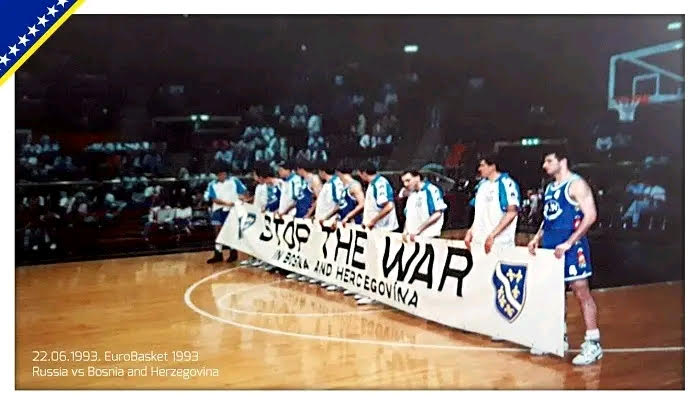
Bosnia 1993
"A darker side"
RETROTEAMS
Antreas Tsemperlidis
9/2/20252 min read
The driver of the small bus moving along that pitch-dark provincial road was trying to focus his attention on driving, something not at all easy since the tracer fire from the guns besieging Sarajevo could be seen even ten kilometers away. Inside the vehicle there was absolute silence, the passengers were immersed in their thoughts. Courage was needed for what they intended to do, but on the other hand their families, their loved ones, had remained behind in the besieged city with the Damoclean sword of death hanging daily over their heads. If it had been possible for someone to see and hear their innermost thoughts, anxiety and fear were the feelings that prevailed.
The only thing that gave them courage was the presence of the symbolic man, the one who, despite the serious health problems that plagued him, stepped forward in this mission which aimed to show all of Europe that in the bloodstained Balkans there was a country, a new homeland, that wanted to declare its existence. The chosen way was participation in the upcoming European Championship in Germany; they had one and only chance for the voice of their people, the voice of Bosnia-Herzegovina, to be heard.
The seven former Yugoslavs and now Bosnian basketball players, led by the great Mirza Delibašić, were a few kilometers away from Pazaric, the small village that had remained unscathed from the attacks of the Serbian army. From there, by following less-traveled roads, they would reach the border with Croatia and then pass into Italian territory, specifically to Bologna. In northern Italy they arrived on April 1, 1993, exactly one year after the outbreak of the war, and there the three players who played abroad joined the team, along with Ibrahim Krehić, who would take over technical leadership.
Mirza was not a coach, but his personal aura was such that he acted as a mentor for his fellow basketball players. The twelve Bosnians went to Wrocław, managing to win qualification for Germany with the ultimate goal of representing a homeland that barely even had its own flag. When the players stepped onto the court for their first training session at the Karlsruhe arena, which hosted the games of the second group, they saw only the three flags of Russia, Sweden, and Spain hanging from the ceiling; theirs, the one signifying the independence of their country, was nowhere to be found (later in the tournament, this omission was corrected).
With their bodies in Germany and their minds in Sarajevo, Sabahudin Bilalović, Samir Avdić with Mario Primorac, Senad Begović, Adis Bećiragić, Emir Mutapčić and Gordan Firić, Emir Hamilić, Ilija Mašnić and Samir Selešković threw themselves into the battle of EuroBasket, forgetting for a while the real deadly battles in Bosnia. They were good basketball players, all with experience from high-level matches; Bilalović, Avdić, and Primorac already had medals and titles with the Plavi.
They managed to advance as third from the group, qualified again through the second stage, and their journey ended in Munich when they were defeated in the quarterfinals by the Croats. But that was the last thing that concerned the Bosnians, the great goal had been achieved. Every time they set foot on the court they were not only playing against their respective opponents but also against tanks, guns, weapons, and bullets. Unarmed heroes, soldiers without helmets, engaged in another kind of war.
Against all adversity and expectations, the national team of Bosnia-Herzegovina in 1993 was the tangible proof of a utopian reality, where death was not present and life continued to flow...




